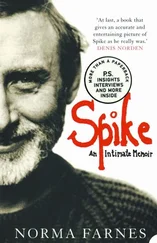“I understand,” Ken said, nodding in agreement.
“I know Mrs. Kennedy wants to be able to wander freely, to get a feel for Greece and the people here,” I added, “but we have to create as safe an environment as possible for her to do that. And, I gotta tell you, Ken . . . I’m counting on you because this language is Greek to me.”
Ken laughed at my feeble joke, but at least I felt like I’d gotten the point across to him. Protecting a public figure is a constant struggle because safety and exposure are conflicting goals. Even though Mrs. Kennedy didn’t seek out the public, people were going to find her and try to get as close as possible. You never knew when someone might attempt to harm her and we had to make sure nothing happened.
The driver delivered us to our hotel, and as soon as Ken and I checked in at the reception desk, I said, “Ken, let’s meet in my room in about fifteen minutes. There’s something I need to discuss with you before we head over to the embassy.”
“Sounds like a plan, Clint. See you in fifteen.”
As soon as I got into the room, I put the suitcase on the bed and began to unpack. Suits and shirts hung up in the small closet. Underwear and socks in the drawers. Toothbrush and shaving kit went in the bathroom. I liked to make sure everything was in its place.
I took my two-and-a-half-inch Detective Special handgun out of my briefcase, where I had stored it for the flight, and placed it firmly into the holster on my hip. Carrying the gun had become so much a part of me that when I was without it, I felt like something was missing. I had never pulled the gun on duty, but I, like all agents, was required to practice shooting at least twice a month at the underground Treasury range. We were required to be proficient with the weapon we carried and I had qualified as an expert marksman.
Just then there was a knock on the door.
I looked through the eyehole in the door to make sure it was Ken, before opening the door.
“How’s your room?” I asked.
“Great,” Ken said. “I see you’ve got a nice view of the Acropolis, too.”
“Yeah, not bad,” I said as I looked at the window. It was a magnificent sight.
“What’s up, Clint?” he asked.
“Listen, Ken, before I left for Paris, the president called me into the Oval Office.”
Ken raised his eyebrows in surprise.
“Yes, exactly,” I said. “Not an everyday occurrence. The attorney general was there, too. So the president said, ‘Clint, when you’re in Greece, whatever you do, do not let Mrs. Kennedy cross paths with Aristotle Onassis.’”
Ken’s eyebrows rose even farther. “Really? That’s interesting. What’s the reason?”
“I don’t know. I was hoping you could tell me. All I know is that Onassis owns a shipping company. Mrs. Kennedy has never mentioned him, but believe me, the message was very clear. Keep her away from the guy.”
“Well, let me see what I can find out from my contacts here,” Ken said. “We should probably head over to the embassy now anyway.”
“I’m ready,” I said. “Let’s go.”
Upon arrival at the U.S. Embassy, we were introduced to Nick Damigos, a Greek national, who handled investigations and protective security matters for the embassy. Nick understood the politics related to Greek-American relations, had a great rapport with the local and federal officials, and spoke perfect English, with just the slightest hint of an accent.
“All of Greece is very excited about the arrival of Mrs. Kennedy,” he said. “I am at your disposal to help in any way possible to ensure the visit is a success.”
“That’s wonderful, Nick. We sure are going to need your help.”
“As you know,” Nick said, “Prime Minister Karamanlis and his wife, Amalia, are the official hosts for Mrs. Kennedy’s visit, but they have given up some of their responsibilities as official government hosts to one of their friends, who is a member of the parliament, Markos Nomikos. Nomikos is quite wealthy—he owns a shipping company—and has far greater resources than the prime minister. Knowing Mrs. Kennedy’s desire for privacy, Nomikos has offered his villa in the seaside town of Kavouri, as well as the use of his one hundred-and-thirty-foot yacht, Northwind, which will allow Mrs. Kennedy to visit some of the islands.”
Giannoules and I would have to check everything out, and the fact that Nomikos was involved in shipping—as was Onassis—caused me some concern, but otherwise it sounded like an ideal arrangement, both from a security standpoint and for Mrs. Kennedy to experience as much of Greece as possible.
Nick had already arranged a meeting for us with the Greek minister of the interior, who controlled the police agencies, so we headed straight to his office. After the introductions, the rest of the conversation was conducted entirely in Greek. There was a lot of laughter mixed in with serious discussions, and while I tried to remain attentive, I could not understand a single word.
Just as I had in Paris, I felt at a disadvantage because I didn’t understand the language, but once we were back in the car, both Ken and Nick assured me the meeting had gone well and the minister had guaranteed the full support and cooperation of the Greek police and military agencies. You couldn’t buy better publicity than having Jacqueline Kennedy visiting your country, and it was evident that all of Greece, from the prime minister at the top, to the worker cleaning the street, was going to make sure this was a successful visit.
When we were back at the hotel, Ken informed me that he had discussed Onassis with Nick Damigos, and without divulging the reasons behind his inquiry, hadn’t been able to learn too much. Onassis had amassed an enormous fortune in the shipping industry, and a few years earlier had founded Olympic Airlines. He had been under investigation for some time by the Federal Bureau of Investigation and, in 1955, Onassis had been fined $7 million by the United States government for the illegal operation of U.S. war surplus ships. A criminal indictment that charged Onassis with eight counts of conspiring to defraud the United States through false statements made when buying the war surplus ships had been dropped.
We decided we’d keep our ears open for more information, but thus far, it didn’t appear as if Mrs. Kennedy would have any reason or opportunity to see Aristotle Onassis, and I still didn’t understand why the president was so concerned about him.
Over the next few days, as Ken Giannoules, Nick Damigos, and I worked with Greek authorities to make all the necessary preparations, Onassis became less of an issue than the language barrier. It turned out that all the official meetings were held in catharevousa —the formal Greek—as opposed to the everyday Greek language that had been used in the Giannoules household. At times, Ken had to rely on the body language of the Greek officials and quickly learned that an upward flick of the head meant “no” to our requests, while a roll of the head with raised eyebrows meant “but of course, you morons.” As it turned out Greek was Greek to the Greek.
While we were preparing every little detail for Mrs. Kennedy’s upcoming trip to Greece, she was creating as much of a stir in Vienna as she had in Paris. The news stories contrasted her young, chic, fashionable appearance with that of the dowdy Mrs. Khrushchev, and to prove the point there was a photo of Mrs. Kennedy leaning in close to Premier Khrushchev splashed on the front page of newspapers all over the world. Taken at a formal evening event at the Schönbrunn Palace, in which Mrs. Kennedy looked as glamorous as could be in a sleek white sleeveless gown, she appeared to be whispering into Khrushchev’s ear, and he had the biggest, leering, smile on his face—you could practically read what was going through his mind. By all accounts the official talks between Kennedy and Khrushchev had gone from congenial to heated, but the Soviet Premier was so taken with Mrs. Kennedy that she became the lead story.
Читать дальше











